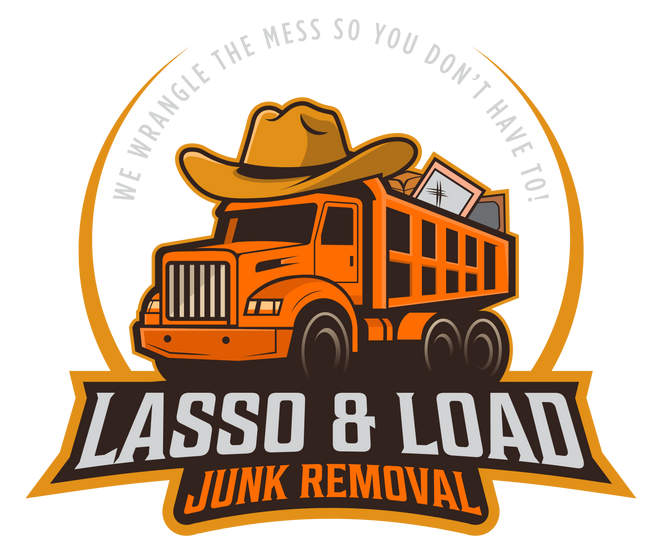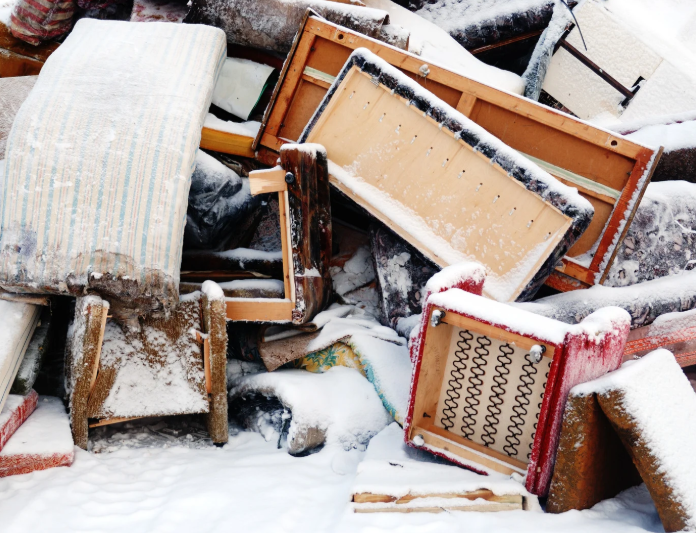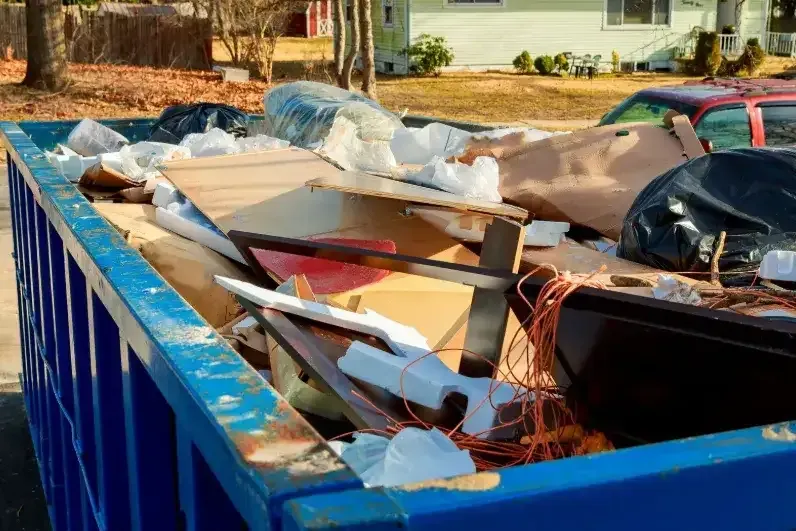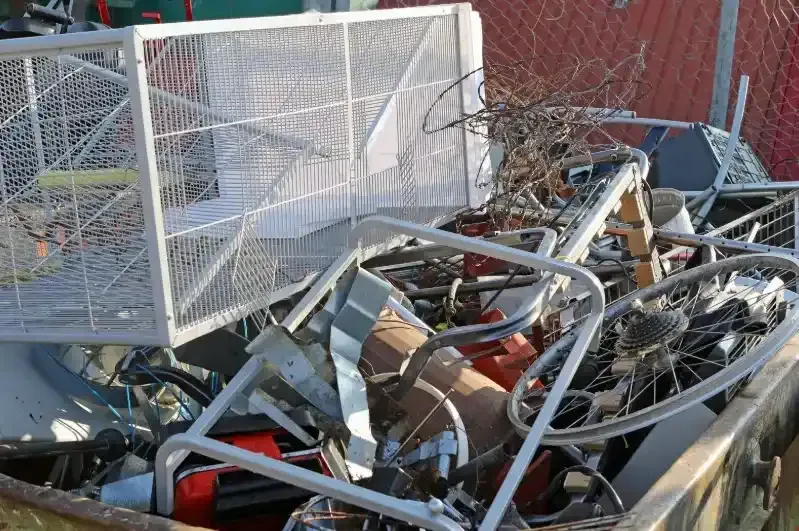How Recycling Helps Reduce the Cost of Junk Removal Services
In today’s fast-paced society, junk accumulates in almost every home and business. Whether it's old furniture, broken appliances, or outdated electronics, we all collect items that eventually need to be disposed of. Traditionally, the most common solution for junk removal was hauling it to a landfill, a practice that often came with hefty disposal fees and harmful environmental impacts. Landfills not only take up valuable space but also contribute to pollution through methane emissions and leachate, which can contaminate surrounding ecosystems.
However, a growing shift toward recycling in the junk removal industry is providing a more sustainable approach. By recycling, valuable materials like metal, paper, and plastics can be repurposed, reducing the demand for new raw materials. This process not only helps conserve natural resources but also cuts down on landfill waste, providing both financial and environmental benefits. Recycling is now seen as an essential part of modern junk removal strategies, helping reduce costs while promoting sustainability.
The Rising Costs of Traditional Junk Disposal
Landfill disposal has long been the standard method for managing unwanted waste, but this approach is increasingly becoming unsustainable. With the growing volume of waste generated, landfill space is becoming limited, and many areas are facing the harsh reality of overcrowded waste disposal sites. On top of this, tipping fees—the charges levied for disposing of waste in landfills—are consistently rising. As landfills reach capacity, these fees escalate, increasing the overall cost of junk removal services. This price increase is often passed down to consumers, making junk removal an expensive endeavor.
In addition to the rising costs, landfills also have a significant environmental impact. As waste decomposes, it releases methane, a potent greenhouse gas that contributes to climate change. Leachate, the liquid byproduct of waste decomposition, can seep into the soil and water supply, creating long-term contamination risks for local ecosystems and communities. These combined economic and environmental factors highlight the need for a more sustainable solution to junk removal.
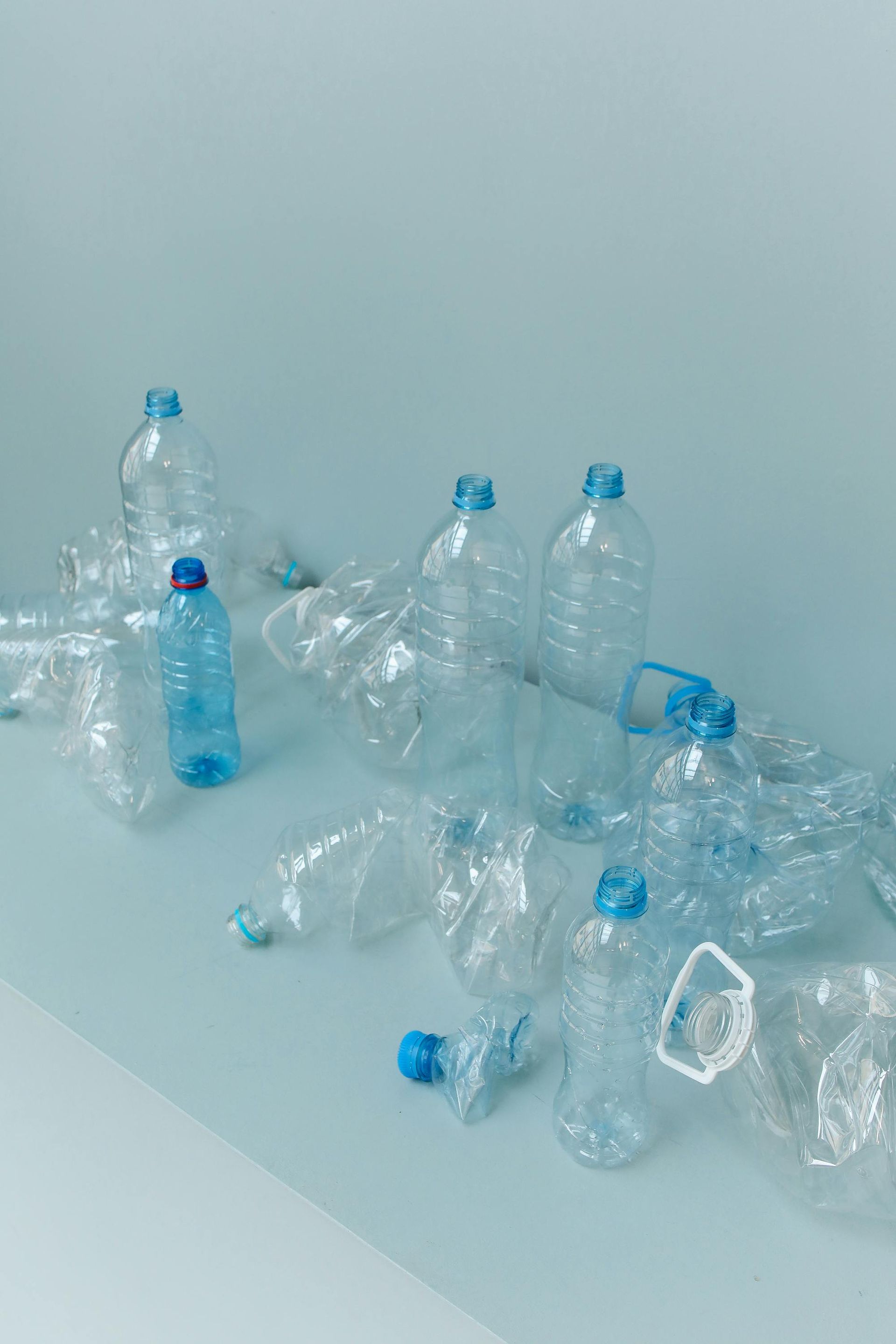
Recycling: A Cost-Effective Alternative
Recycling offers an effective and sustainable alternative to the challenges posed by traditional junk disposal methods. By diverting waste away from landfills, recycling significantly reduces tipping fees and other associated costs, making junk removal services more affordable. Many materials that are commonly discarded, such as metals, plastics, and paper, can be processed and sold, generating revenue that helps offset the costs of junk removal services.
For example, metals like aluminum, copper, and steel have high market value and can be recycled and sold to metal refineries, turning what was once waste into a financial asset. Similarly, paper and cardboard can be repurposed into new products, reducing the need for virgin raw materials and lowering production costs. Recycling not only saves on disposal fees but also encourages a circular economy where valuable materials are reused rather than thrown away. As a result, both consumers and businesses can benefit from reduced costs and a more environmentally friendly approach to junk removal.
Environmental Benefits of Recycling
Recycling provides significant environmental benefits, making it a crucial part of any sustainable waste management strategy. By recycling materials, we conserve natural resources, reduce energy consumption, and cut down on harmful emissions. For instance, recycling one ton of paper saves 17 trees, 7,000 gallons of water, and 463 gallons of oil—resources that would otherwise be used to produce paper from scratch.
Additionally, recycling aluminum, which is a highly energy-intensive process, saves up to 95% of the energy required to produce new aluminum from raw bauxite. This reduction in energy use leads to fewer carbon emissions and a smaller overall environmental footprint. Recycling also helps combat pollution by preventing waste from ending up in landfills or incinerators, where it can release toxic chemicals and pollutants into the air and water. By incorporating recycling into junk removal practices, we not only reduce the strain on natural resources but also play an active role in promoting cleaner, healthier environments for communities worldwide.
Recycling in Junk Removal Services
Modern junk removal companies are increasingly incorporating recycling into their operations, recognizing both the environmental and economic advantages it offers. Rather than sending all collected items directly to landfills, many junk removal businesses now sort through the waste, separating recyclables from non-recyclables. This sorting process helps divert significant amounts of waste from landfills, maximizing the value of materials that can be recycled. For example, metals, paper, and plastics are commonly recovered, processed, and sent to specialized recycling facilities where they can be turned into new products.
Some companies have also developed partnerships with donation centers, ensuring that usable items, such as furniture, electronics, or clothing, are given a second life rather than being thrown away. These efforts not only extend the lifecycle of products but also help reduce the demand for new goods, contributing to a more sustainable and circular economy. By reducing disposal fees through recycling, junk removal companies can offer more competitive pricing, benefiting both their customers and the environment.
Challenges and Considerations
While recycling offers numerous advantages, it is not without its challenges. One of the primary obstacles is contamination. For recycling to be effective, the materials must be clean and properly sorted. Contaminants, such as food waste or non-recyclable items mixed with recyclable materials, can spoil entire batches of recyclables, rendering them unsuitable for processing. This can disrupt recycling efforts and result in higher costs for companies involved in waste management. To address this, proper sorting at the source and consumer education on recycling best practices are essential to ensure that the materials collected are recyclable and contamination-free.
Additionally, the financial viability of recycling can be influenced by market fluctuations. Prices for recyclable materials, such as paper, plastics, and metals, can vary depending on global demand and supply. When prices drop, it can become less profitable for companies to recycle certain materials, which may impact the overall cost-effectiveness of recycling programs. To maintain successful recycling initiatives, companies must stay informed about market conditions, invest in advanced sorting technologies, and continuously train employees to optimize their recycling processes.
How Recycling Lowers the Overall Cost of Junk Removal Services
In today’s world, the rising costs of junk removal services have become a significant concern for many homeowners and businesses. One of the primary ways to reduce these costs is through recycling. By diverting materials such as metal, plastic, and paper from landfills, recycling companies can reduce their tipping fees—the charges for dumping waste at landfills. These savings are then passed on to customers, lowering the overall cost of junk removal services.
Beyond just saving money, recycling helps create a more sustainable waste management system. It promotes the repurposing of materials, reduces the need for raw material extraction, and lessens the environmental impact of waste. This dual benefit of economic and ecological savings is one reason why recycling is becoming an integral part of junk removal strategies. By prioritizing recycling, businesses and residents alike can reduce waste, cut costs, and contribute positively to the environment.
The Financial Benefits of Recycling in Junk Removal Services
When considering the rising costs of junk removal, recycling emerges as a powerful tool for saving both money and resources. Junk removal companies that implement recycling practices can reduce their costs significantly by reusing valuable materials instead of sending them to landfills. The financial savings stem from lower tipping fees and the potential revenue generated from selling recyclable materials, such as metals and paper. These savings help keep junk removal services affordable for customers.
Moreover, recycling helps ensure that fewer materials end up in landfills, which ultimately reduces the long-term environmental costs of waste disposal. The more companies recycle, the more they can pass savings down to their clients while helping reduce the strain on landfills. This creates a more efficient and cost-effective junk removal process, which benefits both the businesses providing the service and the consumers who rely on it.
Why Recycling is a Smart Choice for Junk Removal Cost Savings
As the cost of waste disposal continues to climb, many junk removal companies are turning to recycling as a smart strategy to keep prices down. Recycling helps reduce the volume of waste sent to landfills, directly lowering the tipping fees that junk removal companies must pay. These savings are then transferred to the customer, making the junk removal process more affordable without sacrificing quality or service.
Additionally, by recycling materials like aluminum, copper, and paper, companies can generate revenue from what was once considered waste. This revenue stream helps offset the expenses associated with junk removal, enabling businesses to maintain competitive pricing while continuing to offer top-notch services. Not only does recycling help reduce costs, but it also promotes sustainability by conserving natural resources and reducing the environmental impact of waste. This combination of financial and environmental benefits makes recycling an essential practice for the junk removal industry.
Conclusion
Recycling plays a crucial role in reducing the costs associated with junk removal services, offering significant benefits both economically and environmentally. By diverting waste from landfills, recycling minimizes tipping fees, which in turn reduces the overall cost of junk removal. The process of recycling valuable materials such as metal, paper, and plastics also generates revenue, further offsetting disposal costs. Additionally, recycling conserves natural resources, reduces energy consumption, and decreases pollution—making it an essential practice in the fight against climate change.
For residents and businesses in Gwinnett County, choosing Lasso & Load Junk Removal ensures that your junk removal needs are met in an eco-friendly, cost-effective manner. With a commitment to responsible disposal practices, Lasso & Load stands out as a reliable partner for anyone looking to manage waste efficiently while supporting environmental sustainability. For more information or to schedule services, contact them at 404-227-2017 or via email at Lauren.renwickk@gmail.com.
